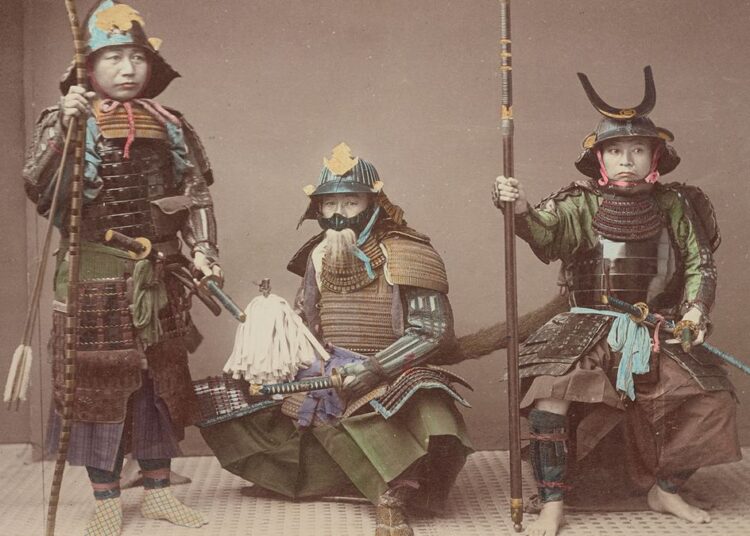Hindsight has a way of glamorizing warfare. Just ask Sarah Thal, a historian of “early modern and modern Japan” who teaches at the University of Wisconsin-Madison.
“During the long peace of the Tokugawa era, when samurai came to work more as administrators than as fighters, many romanticized the earlier times of war (in the 12th to 16th centuries for instance) when samurai actually fought,” she says in an email.
The last shogun was overthrown in 1868. Afterward, Japan entered its reformative Meiji Period, which embraced industry and centralized governance. Historically, the samurai had served feudal lords and enjoyed special privileges. But all that soon changed.
“The official status of samurai was abolished in 1869 and their privileges revoked in the early 1870s,” Thal explains. “With the abolition of their lords’ domains, many former samurai were out of work, unable to get jobs in the new government.
“In the 1890s, they, their children, and many Japanese began trying to define a ‘Way of the Samurai’ that operated both as a nostalgia for the supposedly moral, good old days and as a critique of the modernizing trends of the time,” Thal says.
Enter Nitobe Inazō. A diplomat and author, he radically transformed the way future generations would look at samurai. In 1899, Inazō published an influential book called “Bushido: The Soul of Japan.” The text presents itself as an introduction to “bushido.” According to Inazō, this was the traditional, universal code of conduct observed by real-world samurai.
Except it wasn’t. “The so-called ‘samurai code’ of bushido did not exist in the [Sengoku] heyday of samurai warfare,” Kapur notes. The word “bushido” itself wasn’t coined until the peaceful Tokugawa Period.
But it’s from “Bushido: The Soul of Japan” that we get some of the most pervasive myths about samurai values and behavior. “Samurai were not all the moral, noble, well-to-do spiritual swordsmen depicted in film,” Thal says. “They did not have a single, coherent moral code that defined how they thought and acted.”
“Just like warriors anywhere else,” adds Kapur, “samurai raped and looted and pillaged and were constantly betraying their lords.”
tunart/Getty Images
Read the full article here

















